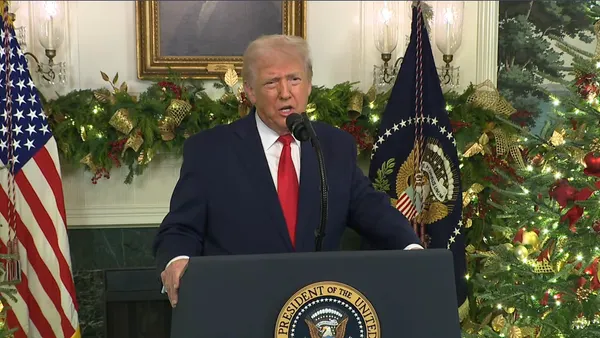Dive Brief:
- Cost estimates from the Arizona Department of Education for the state’s new universal school voucher program are raising questions about whether the Empowerment Scholarship Accounts will ultimately save money or cost the state more than expected.
- The department estimates its universal school voucher program — with a projected enrollment of 100,000 students — will cost about $900 million to fund in fiscal year 2024, according to documentation from the state’s Joint Legislative Budget Committee released by 12 News. The department said 57,886 students are currently in the ESA program.
- As more students join the program, the letter said, more students will leave the public school system and save the state money since the per pupil cost to the state is less for voucher students than for others. However, the Joint Legislative Budget Committee is hesitant to accept these projected findings, saying in a report that there’s not “enough actual data to revise any of the budget assumptions” regarding the program.
Dive Insight:
Critics of Arizona’s universal voucher program argue that this estimated cost will “bankrupt the state by next year.”
The program does not have a fixed budget — rather, the funding is based on enrollment growth projections, However, there is a potential major gap between state funding and actual spending, as previous projections by the Joint Legislative Budget Committee said the program — in its current universal form —would cost an additional $425 million in FY 24. Arizona's fiscal year runs from July 1 to June 30.
“There is no funding for this unaccountable, unbudgeted program — but our leaders are sitting idly while public education is destroyed in front of our eyes,” the nonprofit Save Our Schools Arizona tweeted Tuesday.
Arizona’s universal school voucher program put the state on the map for enacting the nation’s most expansive school choice law when it was signed in July 2022 by then-Gov. Doug Ducey.
Participating families can receive at least $6,000 per year per child for private school, homeschooling, micro-schools, tutoring or any other form of education provided outside of a traditional public school system. Students cannot be enrolled in a public or charter school while getting ESA funds.
As more states have adopted similar sweeping school choice laws, Arizona is setting the stage for potential financial concerns, particularly among public school advocates. The projected surge in enrollment also illustrates how more families are expressing interest in these options.
A March analysis by FutureEd at the Georgetown University McCourt School of Public Policy found at least 32 states provided access to private school tuition through tax-funded school choice programs.
In an April hearing before the U.S. House Subcommittee on Early Childhood, Elementary and Secondary Education, Republican and Democratic members generally disagreed on the merits of private school choice programs. Supporters said school choice can drive competition and innovation. But opponents argued that such programs drain public schools of needed resources and can exclude students with complex educational, emotional and physical needs.






 Dive Awards
Dive Awards






